Kirolos Tharwat stands between two towers of crushed soda cans. His cellphone rings, and he holds it up to his ear.
“That’s fine. I’ll be there in ten minutes,” he says.
A new delivery of empty tin cans must be picked up. Kirolos is one of the many Zabbaleen (trash collectors) who live and work in Cairo’s Garbage City. The Zabbaleen have created their own industry and economy, making a living collecting and recycling trash. It is said that these Zabaleen have one of the highest recycling rates worldwide. About 80 percent of what comes here is given a new life. In comparison, European recycling companies account for an average of 40 percent.
King of the garbage hill
Many of the inhabitants of Garbage City are children, grandchildren, and great-grandchildren of those who first settled here in the 1940s. Due to severe drought and poor harvest in Upper Egypt, many Christian farmers flocked to the capital in search of work.
Unlike their Muslim counterparts, they were able to farm pigs; these pigs, in turn, were fed food waste accumulated by Cairenes across the city. This began what is now known as Egypt’s informal recycling industry, which has since expanded to include waste from Cairo’s 20 million inhabitants.
The cycle begins when people tie their garbage bags and leave it on the stairwell for one of the Zabaleen to pick up. The question remains, however: how can an impoverished community achieve such high recycling rates – levels that are often unattainable for large corporations?
The answer is often dextrous manual labor. Each small piece is sorted by hand and recycled accordingly; gloves are rarely used, as the “job is best done with bare hands,” as the Zabaleen say.
Creating a livelihood
Twenty-five-year-old Kirolos is a third-generation Zabbal, his grandfather having been born in Upper Egypt in 1923. He was one of the many Christian farmers who settled in the Garbage City in Cairo. Kirolos’ father, Naim Tharwat, established a tin can factory.
Now, it is Kirolos and his brother who run it.
Kirolos’ father says that he is proud of what his sons have achieved. After many years of working as Zabbaleen, he has retired and now usually sits outside the workshop, chatting with friends and passersby as he sips cardamom coffee. He is still on duty, and should anything happen, he will quickly get up from the plastic chair and assist. He has a constant eye on the workings of his shop.
He chats with friends and passersby while drinking coffee with cardamom. He is still on duty. Should something happen, he can quickly get up from the plastic chair and assist. He constantly glances at what is happening at the workshop.
As a Zabbal, he has been subjected to condescending attitudes from the rest of the city. In Cairo, many view the occupation as primitive; clothes are often dirtied during work, and men may smell due to the laborious and unsanitary nature of the job. Despite this, Naim keeps his head raised in the wake of it.
“Here in the district, we are proud of what we have achieved. We have created our own livelihood. I hope it will continue for a long time,” he says.
Garbage bags and Christian symbology stand side by side here in Garbage City. The aroma of incense and freshly cooked meals mixes in with the perforating smell of garbage.
As Coptic Christians, there are seven churches in the Zabaleen’s district. The number of members of the Coptic Christian Church is uncertain. According to available statistics, they make up 6 to 9 percent of the population of Egypt. That equates to 4.7 to 7.1 million people. In Garbage City, 95 percent are Coptic Christians.
What a pigsty
Kirolos gets into his truck. The streets are narrow, and rubbish sticks up from the wet clay soil. A cross hangs from the rearview mirror, dangling every time the car drives over a mud street bump.
When asked if the inhabitants here also call the place Garbage City, Kirolos explains that they call it Zarayyeb (plural of zareeba) instead, which translates to pigsty. It’s not uncommon for Egyptians to use the phrase “what a zareeba” when entering into a messy or disorderly place.
For tourists and visitors, the place can seem like a maze. Street signs are scarce, and when they are available they are hard to discern. Tall mud-brick buildings rise into the air, dogs bark and pigs roll in food waste; children can be seen running between the garbage bags, evading small, honking toktoks – small vehicles with three wheels.
Different workshops work with different materials. Two men split wires apart. The plastic coating is laid in one pile, copper from the inside in another. Cardboard is ground down in a machine, whilst broken windows and glass bottles are melted in a furnace.
The hectic atmosphere does not seem to affect Kirolos. He drives with a steady hand and a focused gaze. The phone rings, and he quickly brings it to his ear. This is his workplace, and the job is carried out with precision.
He drives the truck up on a large scale on the road. The truck is weighed before and after Kirolos picks up the tin cans. Together with the man behind the counter, he will calculate how much the day’s catch is worth.
Arriving at the pick-up point, Kirolos meets with the garbage men of the area, who have spent the day collecting trash. He hauls the garbage onto his truck and drives to the next location. Working through the morning and into the night is difficult, but Kirolos has never considered leaving Garbage City.
“This is my home, and this is where I want to stay,” he explains.
Kirolos is not alone. He estimates that almost 95 percent of those who grow up here will continue doing so. Garbage City is a vibrant and busy workplace for many, but it is first and foremost a place where people live. People grow up here, get married here, and continue to start families here. The Coptic Christian community and the availability of churches are also key reasons for why many remain.
When asked if he wants to expand his family’s recycling repertoire, the answer is no.
“Aluminum is the family’s specialty, and this is how it will continue. Why change something that is going well?” He asks.
Kirolos has a degree in computer science. It could provide him an office job, but he does not want that. He uses the knowledge from his degree to keep accounts and make invoices. Previously, they had to hire an accountant, but now he can do the job himself.
“It is nice to have control of all the stages in the process,” he says.
Pen and paper are always available in the car. There is constantly information that needs to be written down. He adds that his education will also benefit his future children.
“It is important to have an education here in Egypt. You get more respect and it can give you a better reputation. If I were to get my children into certain schools later, the teachers prefer that the children have parents with diplomas,” he explains.
When asked where he wants the children to work, the answer is clear.
“Here in Garbage City, I know that they can have a good and stable life, and that I can be there for them when they need me,” he says.
Kirolos returns with the tin cans. There is a new scratch on the car. His dad gets up and takes a closer look; they agree that some new varnish will do away with it. Kirolos has always had access to a car, but many Zabbaleen also use donkeys and carts when they go out across Cairo to collect garbage. It’s efficient when the streets are too narrow for cars to enter.
The large garbage bags are unloaded at the workshop. Kirolos shouts, and two men carry the garbage bags in. Here the tin cans are pressed together into large, colorful pallets in a hydraulic press.
Kirolos’ brother then receives the pallets and melts them in a workshop in another district. The colorful soda labels disappear in the melting process. The aluminum can now be sold in Egypt and abroad, including Spain, Italy, and China, among others.
The place stands out in Cairo’s cityscape. Reddish-brown, tall brick buildings and colorful garbage bags in every nook and cranny. The rubbish has great value, and it should be stored with care, such as on the balcony or roof.
The Tharwat family’s workshop is located on the ground floor. Their home is on the floor above. Kirolos lives here with his brother, his brother’s wife, and their children. He walks over to his brother’s wedding picture and smiles. In six months, he himself will marry and start his own family. Then he and his wife Mariam will not move far.
One floor above, two artisans are restoring and creating stucco to the ceilings. He points to where the living room, kitchen, and bedroom will be.
“This apartment will be as nice as the one my brother has. If not prettier.” he says smiling.
The plastic melter and the commuter
Samuel Youssef grabs a lever on the grinder and pulls it backward. Pieces of plastic in all colors are thrown up like confetti. He has beads of sweat on his forehead.
“We have to grind the plastic before it can be melted,” he explains. In a little while, old shopping bags, packaging, and disposable cutlery will have been ground up.
The melted plastic forms a gray-blue mass. A machine stretches it into long, thin strands before cutting them into small pieces. The machinery is loud, and the fresh pellets have a sweet chemical smell. He takes some of them in his hand. They are still hot.
Most people in Garbage City were born here. Samuel is one of the few who comes from outside; originally a tailor in al-Minya, he moved to Garbage City when he realized the pay would be better. He and a cousin of his had first heard about Garbage City from a friend in their hometown; while they were keen on working there, the friend declined, noting that it was a big responsibility to take them with him. Accordingly, they went on their own—they showed up at church, got to know the pastor, and were allowed to work there for a few weeks.
Samuel and his cousin used the opportunity to get to know the district. One of the priests they came in contact with also ran a recycling company, and the boys seized the opportunity to ask if they could join him. They were allowed to, and the work they produced was impressive enough that both were hired to the plastic smelter where Samuel works now.
Samuel says that he is available for work six days a week, with only Sunday off.
Sunday is a typical working day in Egypt, but not here in Garbage City. Here they are called in for worship. Samuel goes to church as often as possible and is happy to recite hymns at the sermons. He gets paid for the whole week. Some days there are no requests, while other days can be incredibly long. He often works long hours because he wants to compensate for the days he suddenly gets time off.
There are three partners in the plastic smelter. They have asked if he would like to join as a partner, but the initial capital they asked for was too high.
Like so many others here in Garbage City, Samuel also lives on the floor above the workshop. He has a bed, a stove, a sofa, and a table. He explains that the room is sparsely decorated, but he does not do much other than sleep here. A bright light comes from the door leading out to a small balcony. Down on the ground below is a pigsty with about thirty pigs. They snore and stroll around in the mud.
When others ask what he is working with, he says raw materials. He does not explain further because he is used to many people not knowing anything about the place. If they continue asking, he will explain.
The garbage empire and waste is resources in the wrong place
Samuel says that some from Garbage City have sold their property here and established themselves elsewhere in Cairo to continue the recycling work. Property in Garbage City has become expensive. The reason for this is that properties are inherited.
Samuel himself owns three houses in al-Minya. One day he might sell these and invest in a business and an apartment in Garbage City. After working here for three years, he knows both the people and the place well. But prices are rising, and he is unsure if he will ever be able to afford it.
“Time will show. My wife is eight months pregnant, and it would have been something to stay here with children,” he says dreamily. He likes the idea that Garbage City is full of people who create their own jobs and income. If life does not unfold here, he will start his own business anyway.
Many researchers have taken trips to Garbage City to see how the Zabbaleens work. One of them is Jamie Furniss, an anthropologist at the University of Edinburgh. Furniss’ wish was to document the world of waste and find alternative ways of handling objects that are obsolete. Recycled plastic can be turned into sandals, hangers, and blankets; pieces of used cotton can be filled into pillows. A lot of material can find its way back to its purest form: the raw material.
New recycling methods are needed. One of the United Nations’ sustainability goals by 2030 is to “substantially reduce waste generation through prevention, reduction, recycling, and reuse”.
Garbage or gold?
“Waste collectors are often stigmatized. They represent, according to people and the government, a symbol of poverty, and ‘backwardness’,” Furniss explains. According to Furniss, however, many development organizations and outside observers consider Cairo’s waste collectors innovators and entrepreneurs. He believes that the skills and methods of the Zabbaleen inspire alternative solutions to today’s overconsumption and throw-away society.
Furniss states that the term ‘garbage’ does exist in the Zabbaleen vocabulary, but as almost everything has a value, it applies only to a limited residual category of objects, not what most people refer to when they use the word.
“Several innovative ways to reuse or process materials have been developed by the Zabbaleens. One part of my research looked at the new types of recycling machines they adapted from technologies imported from abroad, or designed themselves.”
“The Zabbaleen methods are not necessarily transferable in a wholesale way, however. There is a lack of health and safety measures. And above all, the very fine-grained hand sorting that the Zabbaleen system relies on is not replicable in environments where wages are higher. While it is possible to earn a living in Cairo doing this work, you will not necessarily make a livable wage elsewhere.”
Nevertheless, Furniss believes it is interesting to look at how different societies and cultures handle waste.
“We have a tendency to distance ourselves from garbage. That will not work in the long term since we just keep moving the problem around,” he says. The evening approaches and a pink tinge settles over the city of Cairo. Trucks filled with waste are standing in line, ready to enter the district. Tomorrow it has to be sorted. The Zabbaleen will make their living, and four-fifths of the materials will come to earn a new life.
Photos are courtesy of the author.
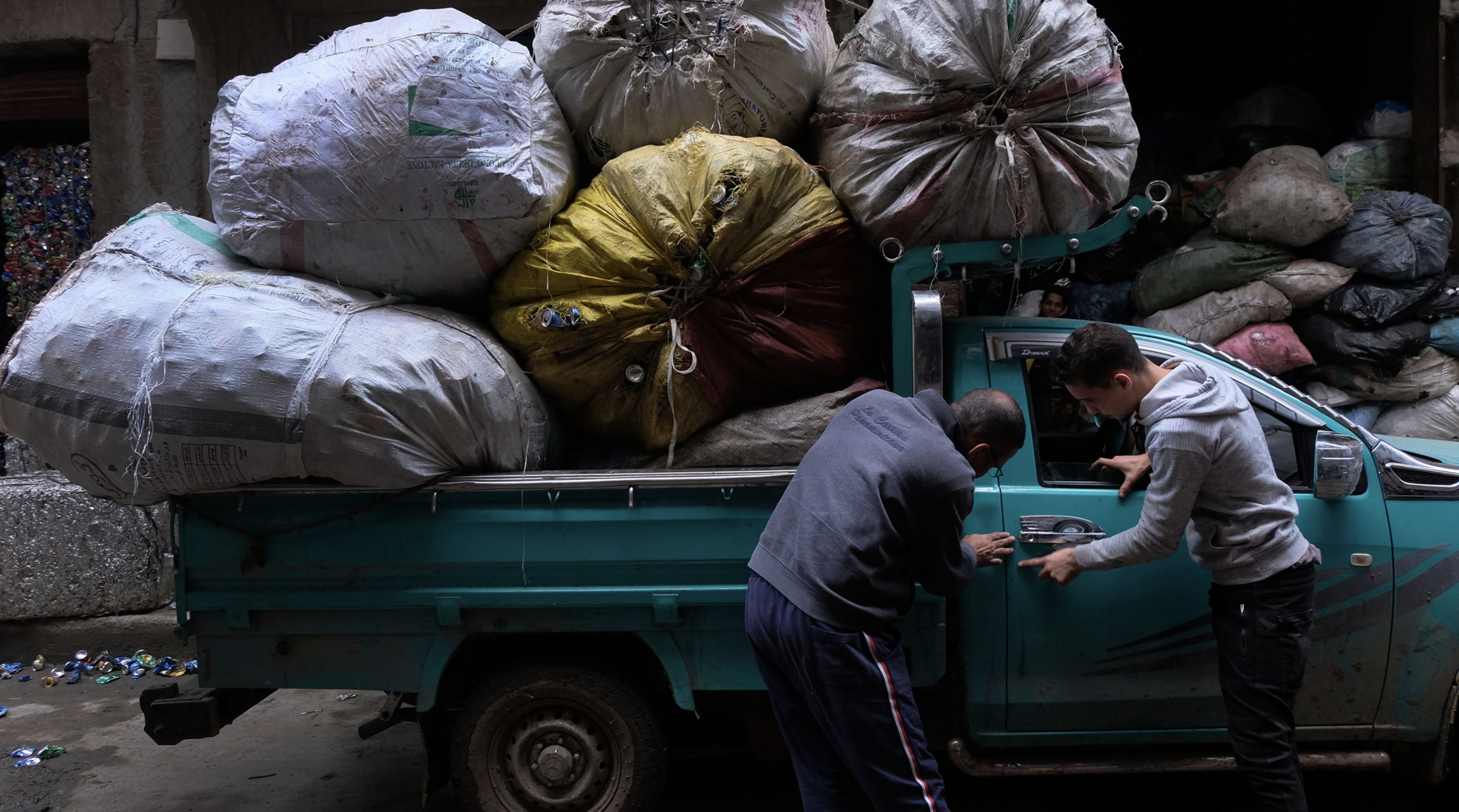
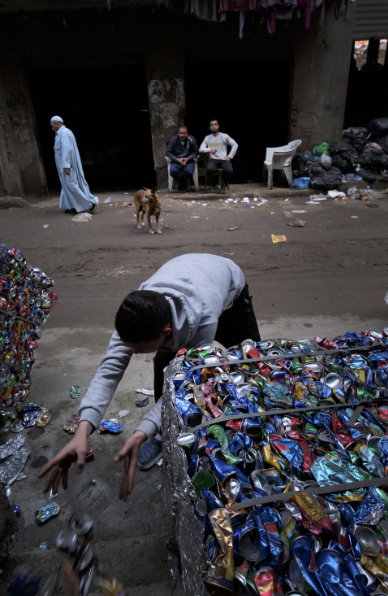
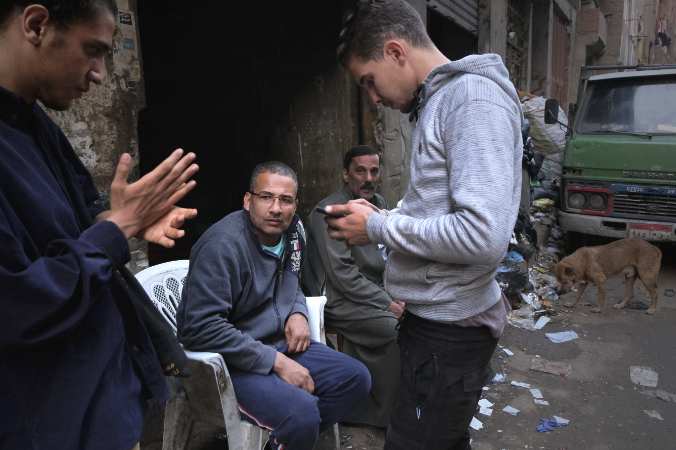
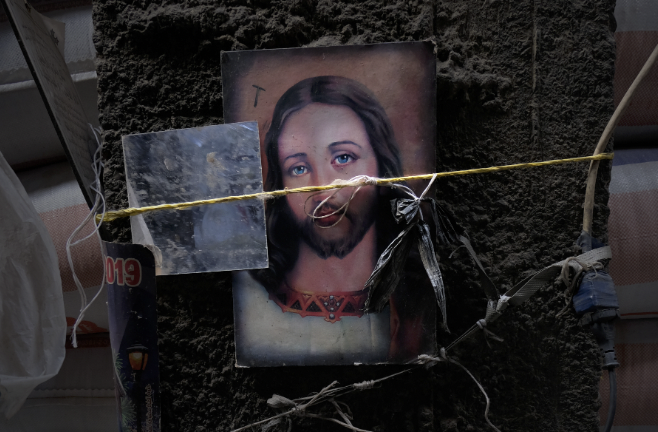
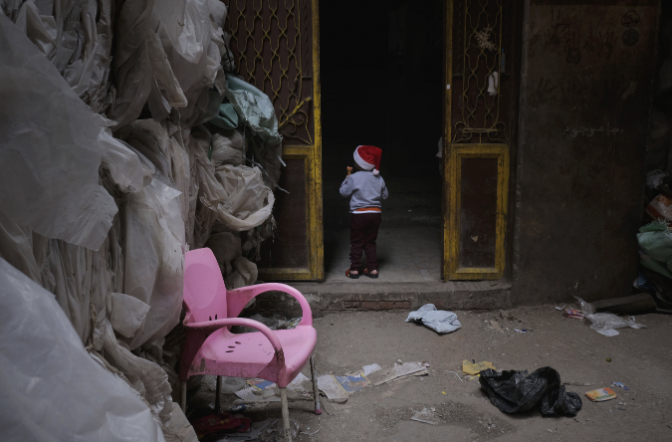
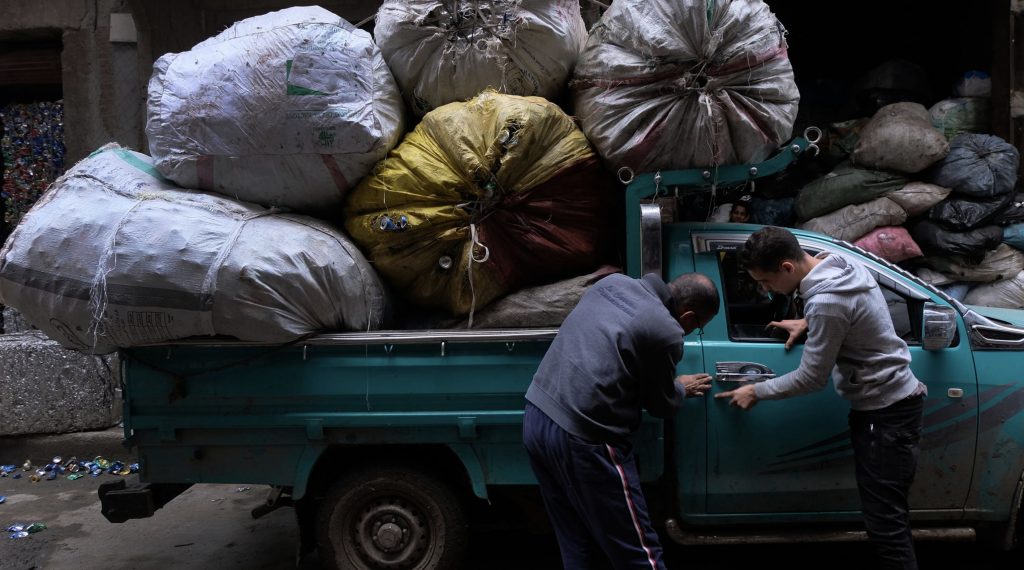
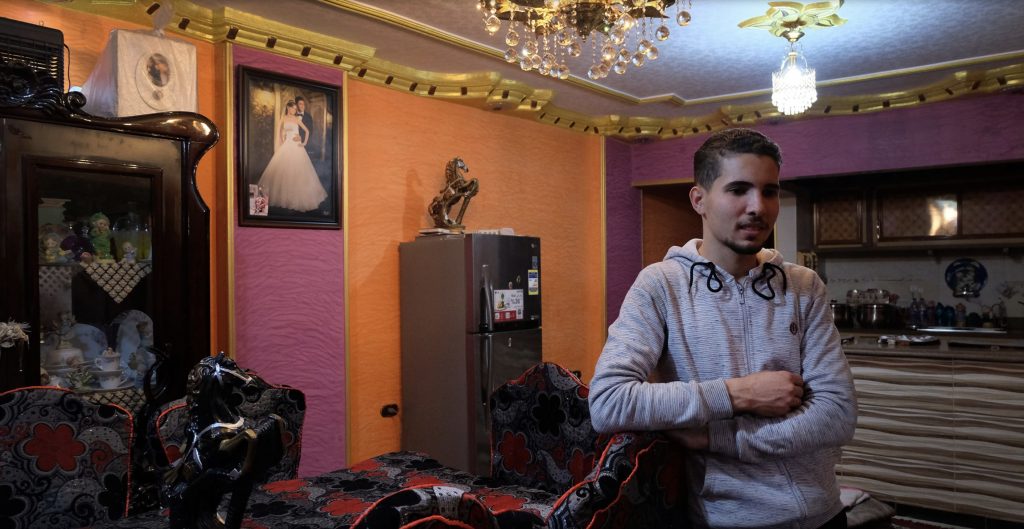
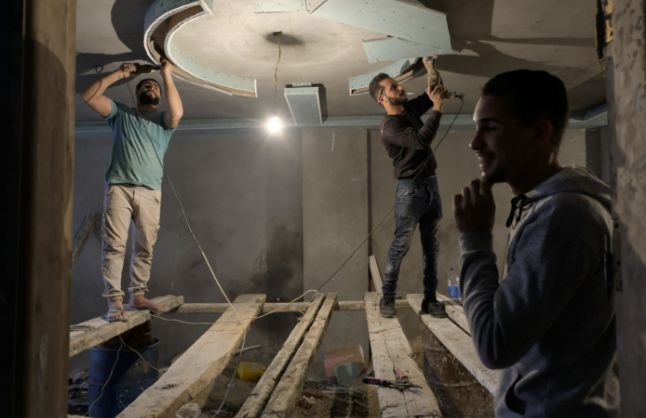
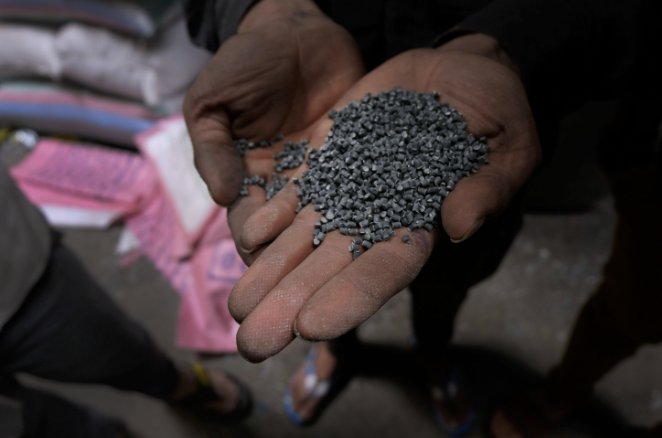
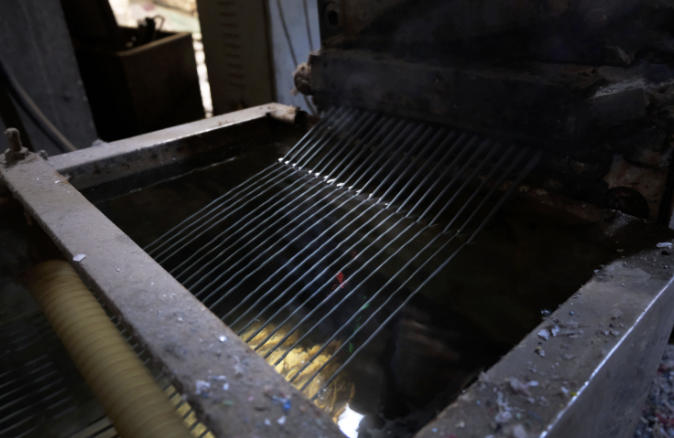
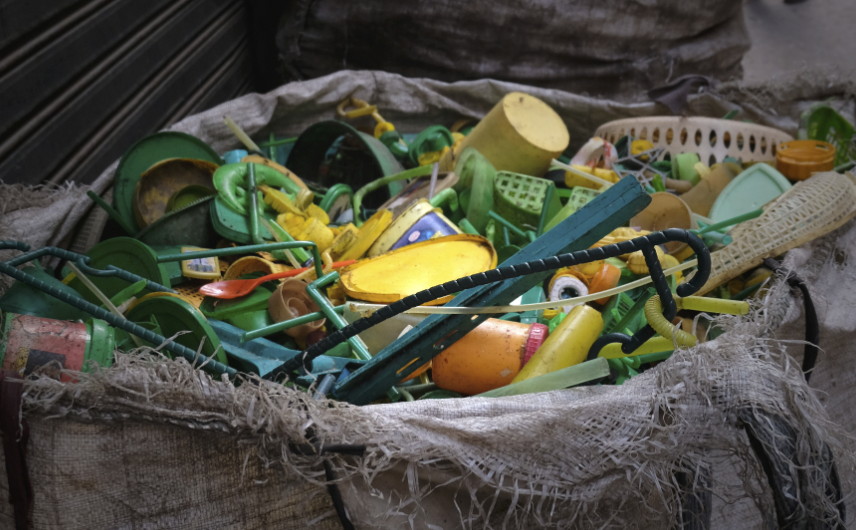
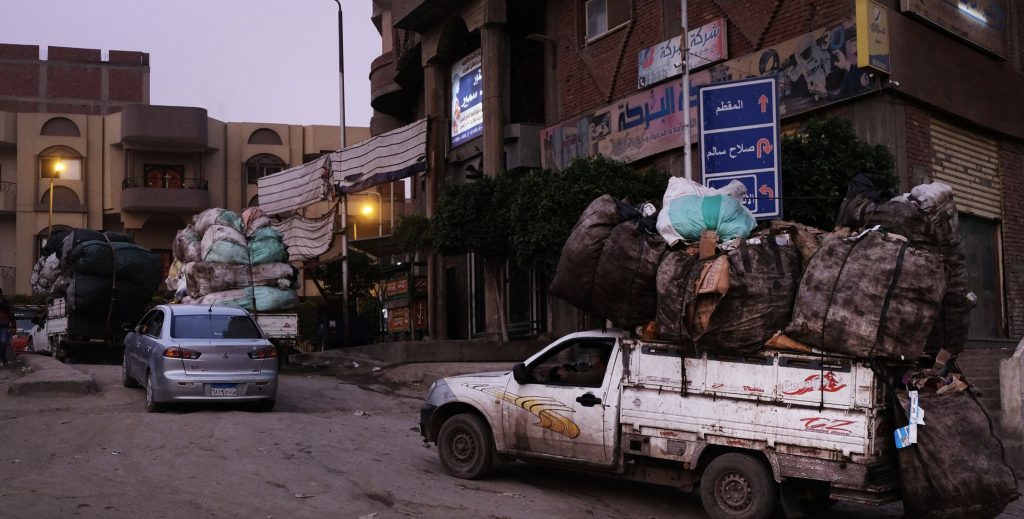


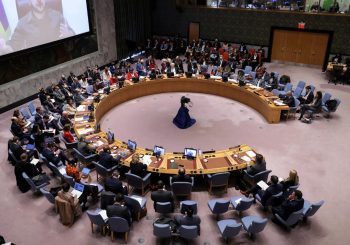


Comments (0)